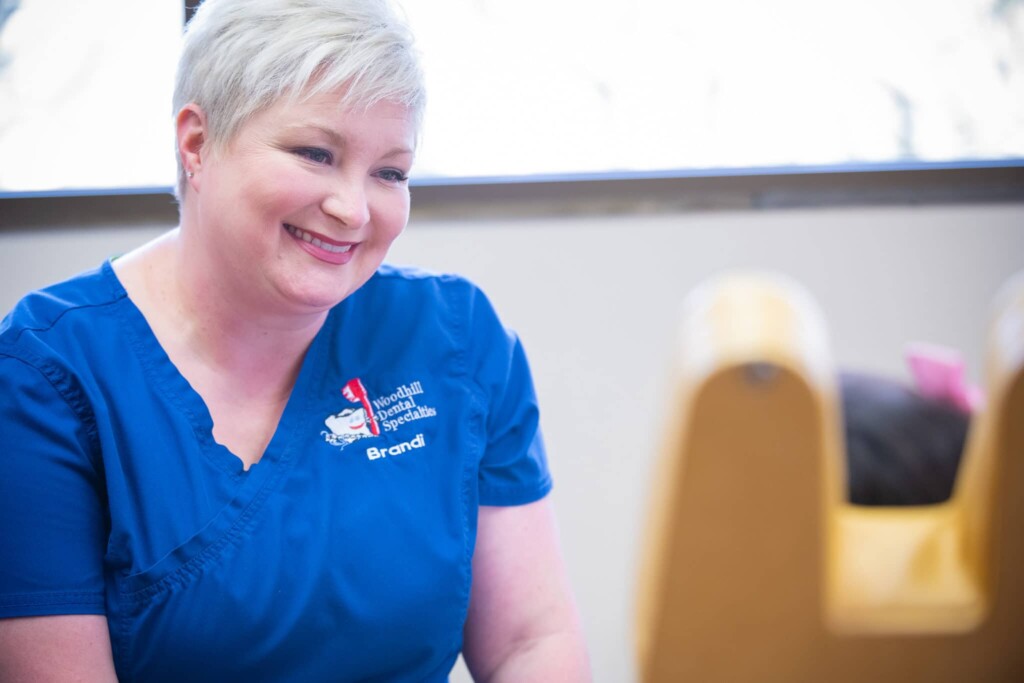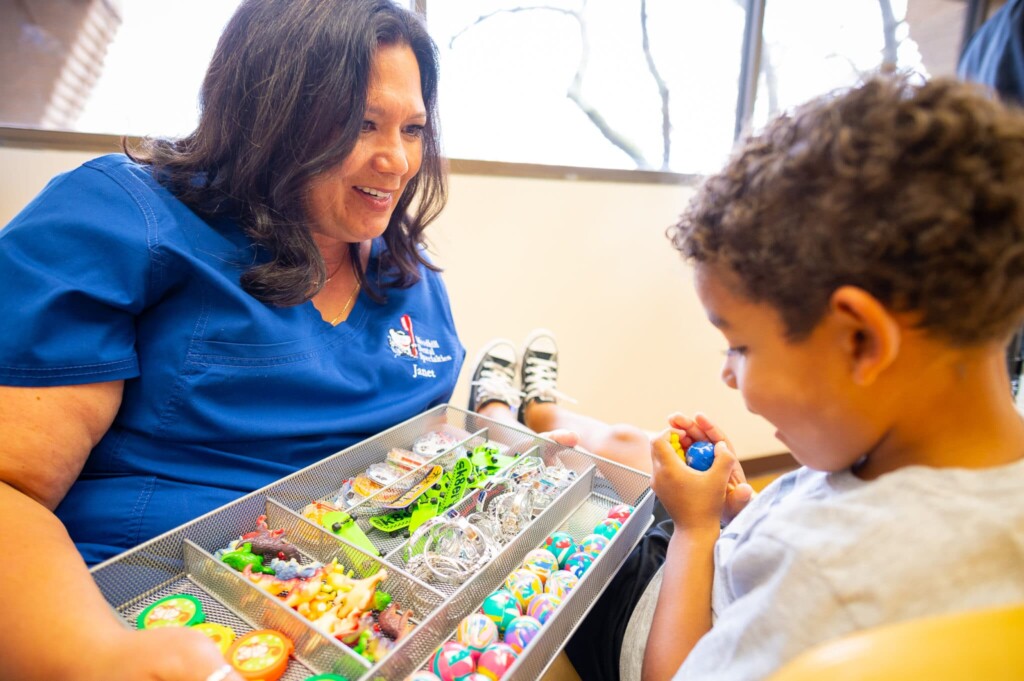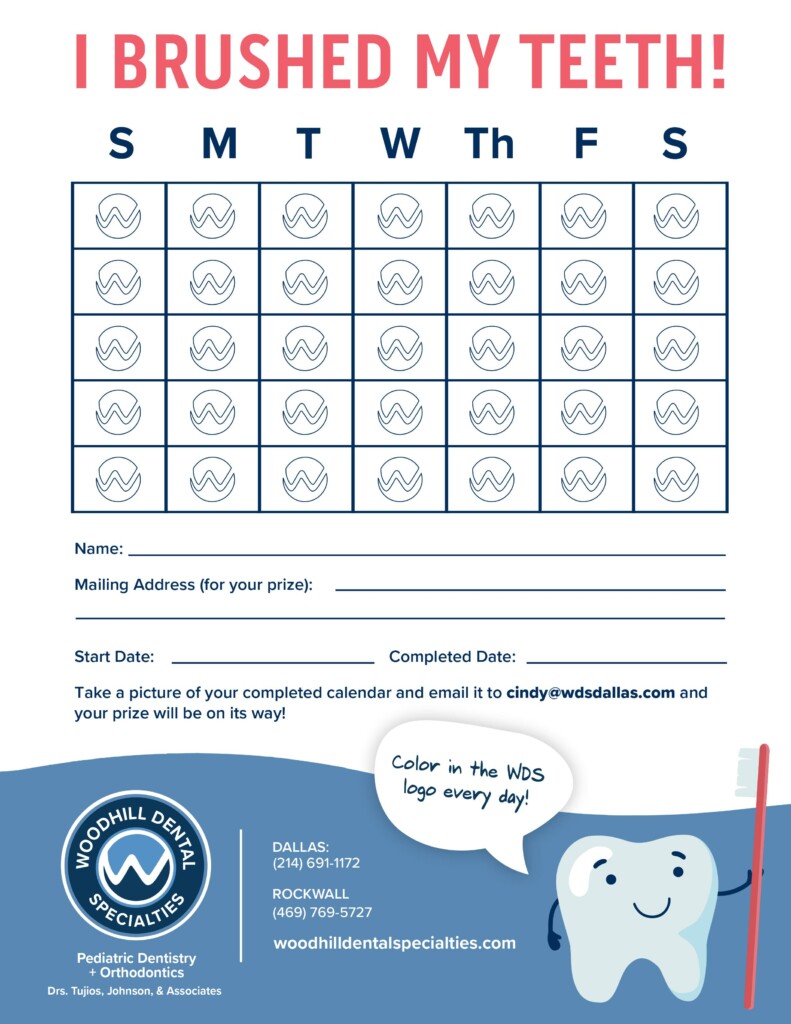Children love their sweets, don’t they? Candy, gum, fruit juice, sugary cereals are some of the things they want as often as possible. We want our kids to grow up with healthy bodies — that includes healthy teeth. Unfortunately, the diet kids crave can be counterproductive for healthy teeth. Without proper diet, flossing, and brushing, kids can be prone to tooth decay and cavities.

At Woodhill Dental Specialties, we know how tough it can be to get your kids to love eating their fruits and veggies over sugary snacks. A lot of parents wonder, “But cavities in baby teeth are no big deal, right? Aren’t they just going to fall out?” Actually, they are just as big of a deal as adult cavities, which is why you should do all you can to ensure your kids are starting to care for their oral health from a young age. We always say the right time to start brushing your kid's teeth is as soon as they have teeth!
Let’s start with the basics. What is a cavity? A cavity is an area on the tooth where plaque has built up and eaten away at the enamel, the tooth's hard outer shell. A hole forms in the tooth that can extend into the pulp, the live portion of the tooth. Cavities can be painful because the pulp holds the nerves and blood vessels. Left untreated, a cavity can lead to infection and even tooth loss.
Cavities result from tooth decay, which is caused by plaque buildup. While all foods can produce plaque, sugary foods especially can eat away at the enamel faster. That’s why it’s important to keep sugary foods to a minimum and brush regularly to avoid cavities.
Part of what makes us different is that we entertain and educate our patients while treating them. We t
You may think it’s easy to tell if your child has a cavity. It can be, but usually in the later stages when the hole is present. But cavities can be spotted and treated sooner by your child’s dentist. The doctors at Woodhill Dental Specialties can not only spot the cavities but also the warning signs indicating a cavity may be imminent.
The sooner we can treat your child’s cavity, the more minor discomfort your child will experience and the better the chances your child will be able to keep the tooth. Cavities left to grow can kill the tooth by damaging the pulp, leading to tooth loss.
How do you know if your child has a cavity? Here are a few warning signs:
If you live in the Dallas or Rockwall, TX, area, bring your child to one of our offices if you notice any of these symptoms. We will give your child a thorough examination to see if a cavity exists, and we will offer the best options for fixing the problem.




You would think that cavities in baby teeth are no big deal. After all, those teeth will fall out soon, right? Why fix cavities in teeth your child will lose? Cavities are just as damaging in baby teeth as in permanent ones, and it’s just as important to treat them right away.
Baby teeth with cavities are just as painful as permanent teeth with cavities. Those cavities can still cause infections. Baby teeth are also needed for the child to eat and speak properly. This is especially important while the child is developing these skills. Baby teeth also set the proper spacing for permanent teeth to enter later. If the baby tooth falls out early due to tooth decay, the permanent tooth could come in crooked — or not at all. So it’s essential to have your child’s cavity treated by a dentist right away, regardless of whether it’s in a baby tooth or a permanent one.
Are cavities inevitable for your child? Genetics can be a factor in tooth decay — some children may be more susceptible than others. That doesn’t mean cavities are a given in children. Starting early to teach your child good oral hygiene habits can prevent cavities throughout their lifetime.
The first step is the most important: Have your child brush at least twice daily and floss at least once a day. Your child needs to brush for at least two minutes each time, cleaning every tooth. Oral hygiene needs to start with the first tooth. You can start with a warm, wet cloth cleaning the new tooth, so your baby gets used to having something in their mouth.
As the child grows, you can teach the child to use a toothbrush. Manual brushes are fine, but electronic toothbrushes are fun! Your child may be more motivated with a fun toothbrush. You can find one with your child’s favorite cartoon character, blinking lights, or even ones that play music! There are many options available.
Ensure your child uses fluoride toothpaste, but supervise your child using that until about age 6. You don’t want your child swallowing excess toothpaste, and you want to make sure your child is brushing properly.
If your child needs a little extra motivation, have them use this free, handy chart — just click to download! Your kids can track their toothbrushing and flossing on the chart, and if they bring it back to their office completed, they can win a prize! How’s that for motivation?

Another way to prevent cavities is to keep sweet and starchy foods to a minimum. These create the most plaque, and a high-sugar diet can produce cavities much faster than a healthy one. Plus, it sets your child up for healthy eating in the future. That healthy diet should include drinking plenty of water, which washes the teeth and can help remove plaque.
Finally, make sure your child visits the dentist regularly. We should see your child at least every six months for a thorough checkup and cleaning. We’ll be able to spot if your child might be developing any cavities, and we can fix your child’s teeth if we do find cavities. However, good oral hygiene habits and regular dental visits should keep cavities out of your child’s mouth!
If you are concerned that your child may have cavities, contact us at Woodhill Dental Specialties. You can schedule an appointment at our Dallas or Rockwall, TX, office, and we will treat your child with care and compassion while providing exceptional dental care. Let us know how we can help you!